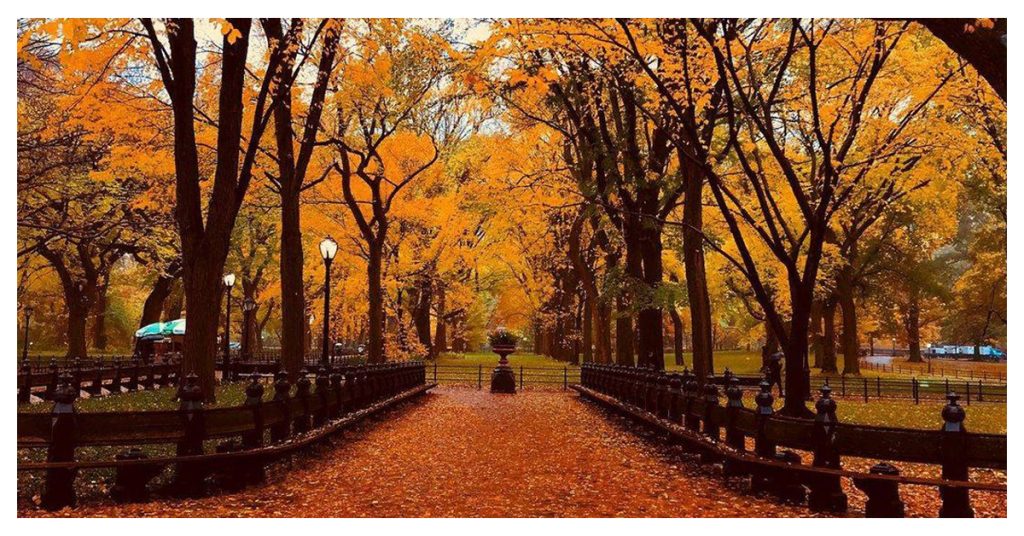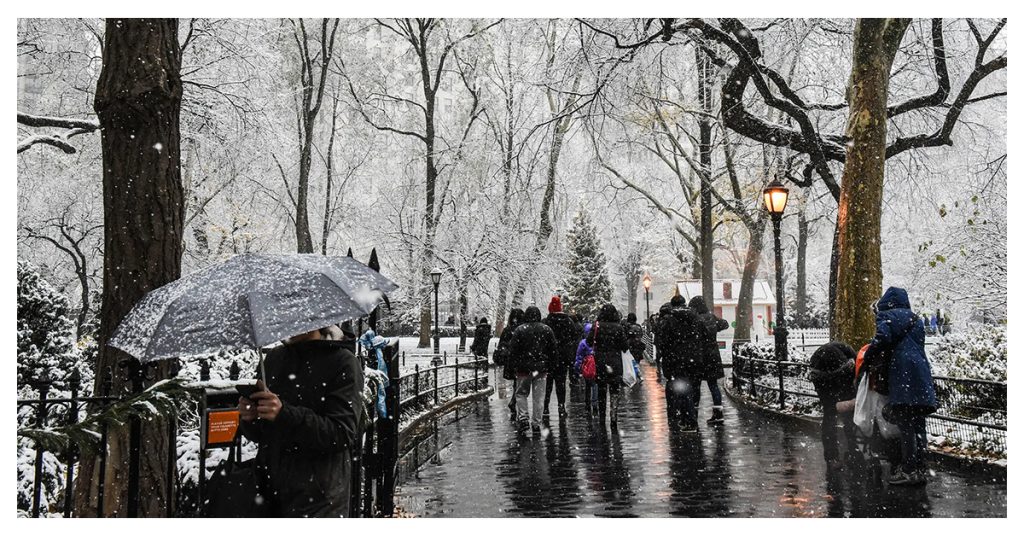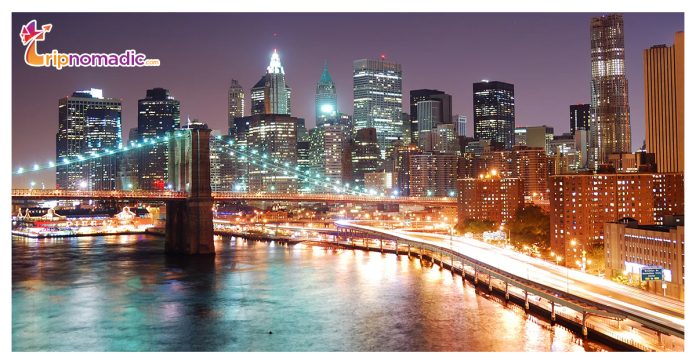New York City is an incredible destination to visit year-round. It has world-class museums, endless entertainment options, iconic landmarks, and diverse neighborhoods to explore. However, when you decide to visit can greatly impact your experience. Here, we are going to walk you through everything you need to know to plan your NYC trip and the best time to visit New York for your interests, budget, and schedule.
Best Time to Visit New York in the Fall (September to November)

Hands down, autumn is the ideal time to visit New York City. September through November brings pleasant weather, gorgeous fall foliage, fun events, smaller crowds, and lower prices compared to the busy summer travel season.
Early fall brings lingering warm temperatures perfect for exploring the city’s neighborhoods, parks, and rooftop bars. By mid-October, the trees start exploding in vibrant red, orange, and yellow hues.
Some of the best spots to take in the fall colors are Central Park, Prospect Park, and Fort Tryon Park.
In addition to beautiful scenery, fall hosts several exciting events like the annual Greenwich Village Halloween Parade, Broadway Week where you can score discounted theater tickets, and various food and culture festivals.
Since kids are back in school, you’ll avoid the summer vacation crowds. Hotel prices also tend to dip after Labor Day weekend through November. Just be mindful of increased demand and rates around Thanksgiving week.
Simply put, fall combines fantastic weather, festive energy, and smaller crowds for an ideal NYC experience. Just bring along some layers to add or subtract as the temperatures fluctuate.
Read More – Top 6 Things to Do in Hollywood Florida For Fun in the Sun
What is the Best Time to Visit New York City?

While fall gets my vote for the single best time to visit New York, the optimal time really depends on your interests, budget, and flexibility.
Here’s a quick breakdown of the best times to visit New York for different travelers:
Budget-focused: January and February offer the lowest hotel rates and flight deals outside of major holidays. Bundle up for chilly weather.
Families with kids: April through June boasts pleasant weather and fewer crowds once school is in session again. Many attractions like zoos and parks are also more tolerable.
Events and festivals: Summer is packed with free outdoor concerts, parades, and street fairs. Spring’s roster includes festivals celebrating food, design, and performing arts.
Broadway musicals: September to November and January to February for more availability and discounted tickets during Broadway Week promotions.
Milder weather: Late spring (May/June) and early fall (September/October) offer the best temps for long days of sightseeing.
Holiday magic: December exudes festive charm but comes with cold weather and peak rates.
No matter when you decide to visit, New York City offers boundless energy and activities year-round! The key is knowing what to expect during each season.
Weather and Crowds by Season in NYC

New York City experiences all four seasons. Below is an overview of the weather, crowds, and events during different times of the year to help plan your perfect trip timing.
1. Winter (December to February)
While winter brings frigid temperatures and occasional snowstorms, it’s also the least crowded and best time to visit New York. Bundled-up sightseers can enjoy holiday ambiance through New Year’s, museums, Broadway shows, and indoor attractions.
Plan to bring your warmest coat, hat, boots, and gloves to comfortably explore the city on foot. Temperatures typically range from 30 to 45°F (-1 to 7°C). January is usually the coldest month.
Popular winter activities include ice skating, holiday markets, window displays, and New Year’s Eve in Times Square. January also hosts Lunar New Year celebrations and Broadway Week discount ticket promotions.
2. Spring (March to May)
As the weather warms up, blooming flowers and budding trees bring New York to life in springtime. Temperatures range from 40 to 70°F (4 to 21°C) on average.
The spring shoulder season offers mild weather before peak summer crowds arrive. March still feels wintry while May ushers in warmer temps. April showcases stunning cherry blossoms!
Spring events include St. Patrick’s Day, outdoor festivals, Macy’s Flower Show, NYC Restaurant Week, and more. A light jacket is recommended for evenings and unexpected showers.
3. Summer (June to August)
New York City bursts with energy and activities during the hot, humid summer. Locals and visitors alike enjoy outdoor concerts, street fairs, rooftop bars, beaches, and more under sunny skies.
However, the soaring summer heat and crowds can be draining. It’s best to plan a mix of indoor/outdoor activities and take frequent breaks. June offers long summer days without the worst humidity of July and August.
Celebrations like Pride, Fourth of July fireworks, Shakespeare in the Park, and US Open tennis electrify the summer calendar. Just stay hydrated as temperatures climb into the 80s and 90s °F (high 20s to mid-30s °C).
4. Fall (September to November)
The best time to visit New York in the fall is September to November. Crisp air, brilliant fall foliage, and festive events make autumn a fabulous time to be in New York City, especially October. The comfortable 60s and 70s °F (15 to 24°C) weather invites long strolls and outdoor dining.
Fall perks include smaller crowds once kids return to school, lower hotel rates after summer’s peak, outdoor concerts, and sights like Central Park swathed in golden leaves.
Top events include Broadway Week, Village Halloween Parade, food and film festivals, NYC Marathon, and holiday markets. The only downside is that attractions like beaches and pools start closing by mid-September.


